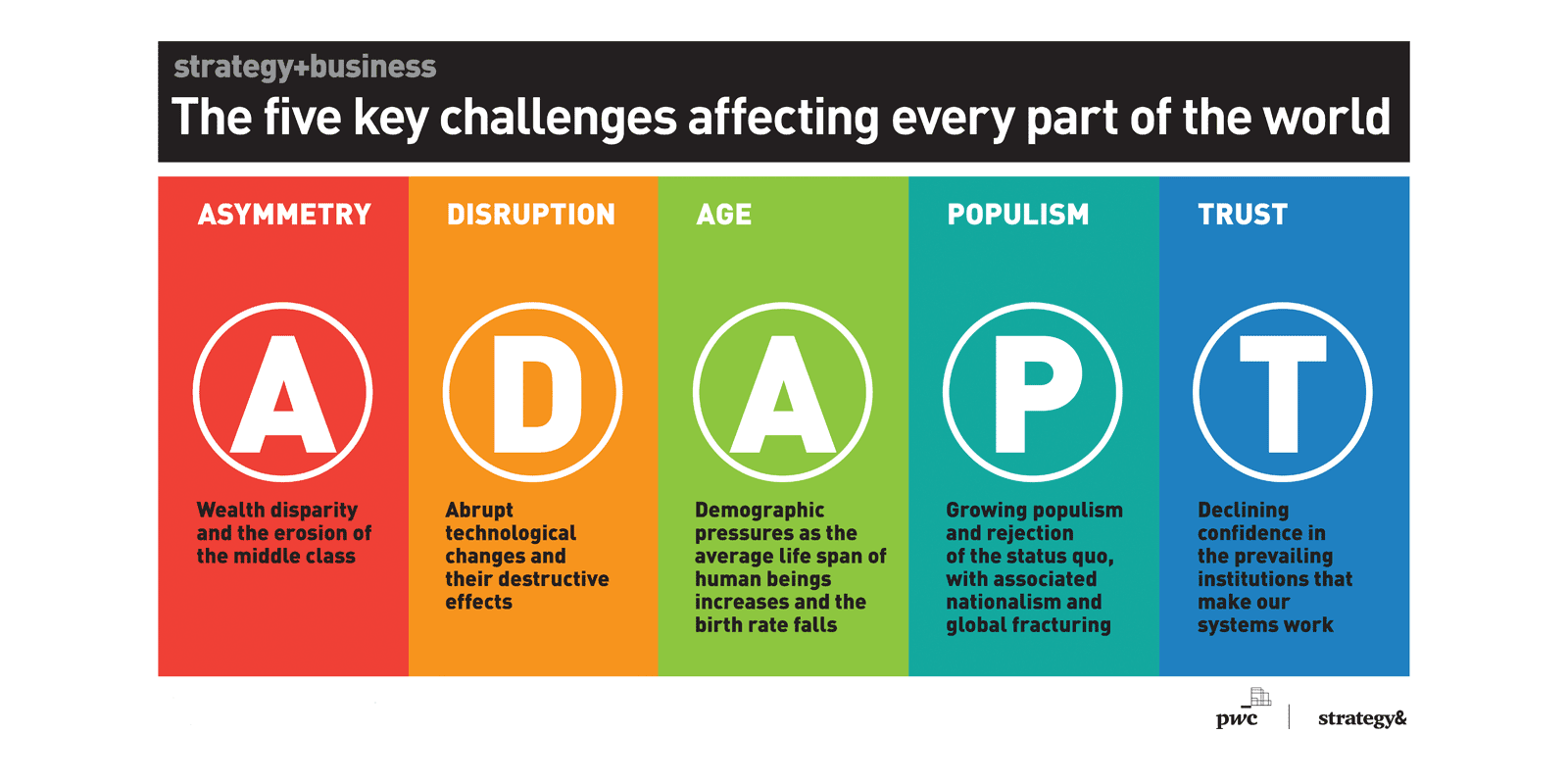Blair Sheppard and Ceri-Ann Droog at Strategy and Business: “For the last 70 years the world has done remarkably well. According to the World Bank, the number of people living in extreme poverty today is less than it was in 1820, even though the world population is seven times as large. This is a truly remarkable achievement, and it goes hand in hand with equally remarkable overall advances in wealth, scientific progress, human longevity, and quality of life.
But the organizations that created these triumphs — the most prominent businesses, governments, and multilateral institutions of the post–World War II era — have failed to keep their implicit promises. As a result, today’s leading organizations face a global crisis of legitimacy. For the first time in decades, their influence, and even their right to exist, are being questioned.
Businesses are also being held accountable in new ways for the welfare, prosperity, and health of the communities around them and of the general public. Our own global firm, PwC, is among these businesses. The accusations facing any individual enterprise may or may not be justified, but the broader attitudes underlying them must be taken seriously.
The causes of this crisis of legitimacy have to do with five basic challenges affecting every part of the world:
- Asymmetry: Wealth disparity and the erosion of the middle class
- Disruption: Abrupt technological changes and their destructive effects
- Age: Demographic pressures as the average life span of human beings increases and the birth rate falls
- Populism: Growing populism and rejection of the status quo, with associated nationalism and global fracturing
- Trust: Declining confidence in the prevailing institutions that make our systems work.
(We use the acronym ADAPT to list these challenges because it evokes the inherent change in our time and the need for institutions to respond with new attitudes and behaviors.)

Source: strategy-business.com/ADAPT
A few other challenges, such as climate change and human rights issues, may occur to you as equally important. They are not included in this list because they are not at the forefront of this particular crisis of legitimacy in the same way. But they are affected by it; if leading businesses and global institutions lose their perceived value, it will be harder to address every other issue affecting the world today.
Ignoring the crisis of legitimacy is not an option — not even for business leaders who feel their primary responsibility is to their shareholders. If we postpone solutions too long, we could go past the point of no return: The cost of solving these problems will be too high. Brexit could be a test case. The costs and difficulties of withdrawal could be echoed in other political breakdowns around the world. And if you don’t believe that widespread economic and political disruption is possible right now, then consider the other revolutions and abrupt, dramatic changes in sovereignty that have occurred in the last 250 years, often with technological shifts and widespread dissatisfaction as key factors….(More)”.